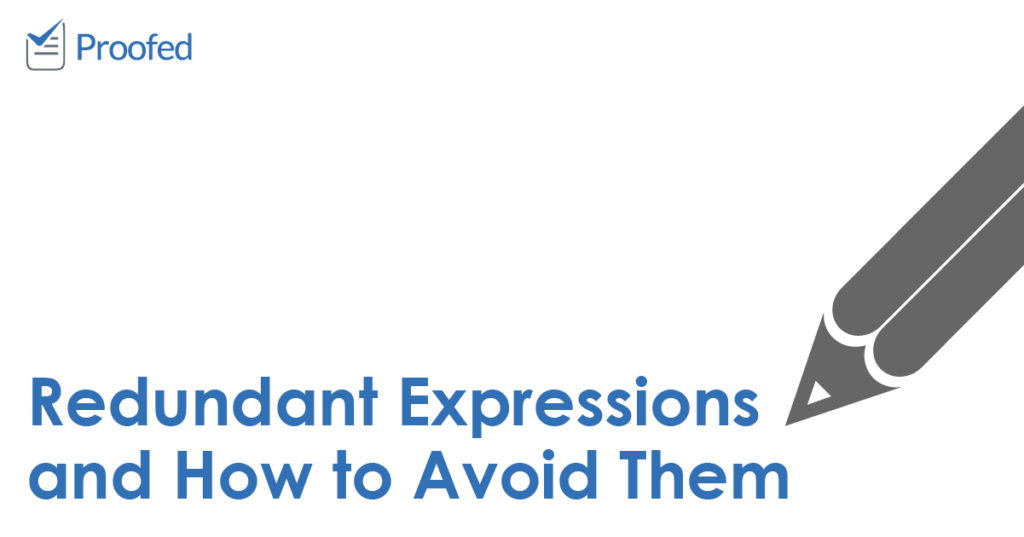Do you ever get the feeling you’re repeating yourself? It’s certainly a common problem in writing, especially when it comes to redundant expressions. But what are redundancies? Why are they a problem? And how can you avoid them in your written work? Let us explain.
What Are Redundant Expressions?
Redundant expressions are phrases made up of two or more words that repeat the same idea. A good example is “twelve midnight,” since “midnight” is always at 12am. We can therefore drop “twelve” without losing any meaning. Other redundant expressions include:
- Added bonus
- Cease and desist
- Consensus of opinion
- Each and every
- End result
- Free gift
- New innovations
- Null and void
- Past history
- Plan ahead
- Regular routine
- Rough estimation
- Sum total
- Unexpected surprise
Some of these redundancies can be used for emphasis. Saying “null and void,” for example, sounds stronger than “null” or “void” alone. Others may have uses in specific contexts (e.g., “cease and desist” is a common phrase in legal contexts, with the doubling up a leftover from a time when many legal phrases included words from two or more languages to ensure understanding).
Usually, though, redundant expressions are just wordiness. And since wordy writing is harder to read, you will want to avoid redundancies in your written work.
How to Avoid Redundant Expressions
What, then, should one do upon spotting a redundant expression? The simplest answer is to remove the unnecessary word or words. Depending on the redundant expression used, you may even have a choice of which term to keep. “Cease” and “desist,” for example, are interchangeable:
Will you cease and desist that infernal racket! – Redundant
Will you cease that infernal racket! ✓
Will you desist that infernal racket! ✓
Find this useful?
Subscribe to our newsletter and get writing tips from our editors straight to your inbox.
But most of the time you will need to be careful about which term you remove. The key is that most redundancies contain a modifying term (i.e., an adjective or an adverb). For instance:
We should plan ahead for Christmas. – Redundant
Here, we see the verb “plan” being modified with the adverb “ahead.” But since planning involves thinking ahead by definition, the word “ahead” is redundant. By comparison, if we cut “plan,” we would end up with an adverb without a verb to modify, which is ungrammatical:
We should ahead for Christmas. ✗
We should plan for Christmas. ✓
In cases like this, then, you should always remove the modifying term, not the term being modified. And if you’d ever like a little extra help with your writing, don’t forget to get it proofread by the experts!
